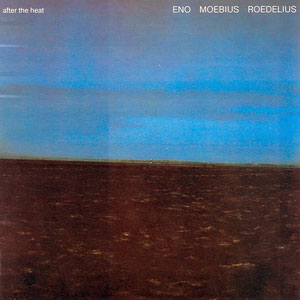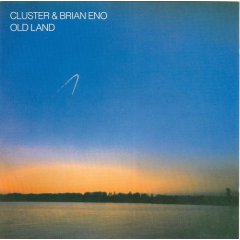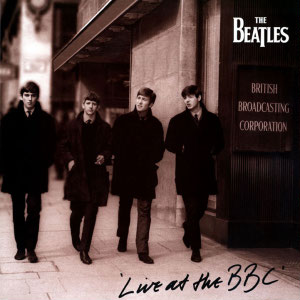
Beatle activity took precedence for a time, so Paul abandoned the band he took around the world twice. Once the
Anthology project blew over, we were pleasantly surprised to hear he had a new album all ready, and mortified to hear that half of it was produced by Jeff Lynne.
Flaming Pie might as well be called McCartney III, since it was written and recorded fairly quickly, with a minimum of pretension and him on most of the instruments. But there are other musicians on it, and the resulting title refers to a John Lennon expression as a nod to the old days when making records was fun and carefree.
“The Song We Were Singing” is a fantastic start, not unlike a pub singalong. “The World Tonight” has some fine spiraling guitar that’s not undercut by the drums. Constant readers will have noted how Jeff Lynne can take some of the world’s greatest rock drummers and make them sound like a machine. In this case, it’s Paul on drums, so he can only sound better. “If You Wanna” is an inoffensive throwaway not unlike “Things We Said Today”. “Somedays” is a very sad sounding song, with mournful strings, but the lyrics are more wistful in their nostalgia. “Young Boy” was the British single, and a good choice, with a slowed-down ending stolen from “Whiter Shade Of Pale”. “Calico Skies” was recorded during the Off The Ground sessions with George Martin, and is full of overtones from his first album. Then “Flaming Pie” comes crashing in. With its obnoxious vocal and pounding piano, it’s another example of getting the recipe exactly right.
“Heaven On A Sunday” takes the mood down again, with atmosphere and interlocking guitars, one played by his son James, for a nice evocation of late-period Wings. The wholly unwelcome Steve Miller is all over the idiotic “Used To Be Bad”, but “Souvenir” provides a little bit of soul, a well-written R&B torcher. “Little Willow” is an incredibly gentle song for any lost friend, in this case Ringo’s ex-wife Maureen. Truly touching and elegantly played. He made a big deal out of finally writing a song with Ringo, but “Really Love You” isn’t a song, it’s a five-minute timekiller. If you skip this one you go right into “Beautiful Night”, that one song per album that’s guaranteed to please. The verses are gorgeous, the choruses are gorgeous, the orchestral arrangement is gorgeous, and the silly party ending can’t kill it. And it’s always nice to follow a beautiful night with a “Great Day”, which probably dates from the 1971 “Bip Bop”/“Big Barn Bed” period. Linda joins in, and the next thing you know, you’re pressing the play button again.
Flaming Pie was such a nice surprise, and completely unexpected. Even Jeff Lynne and Steve Miller couldn’t tarnish the fun to be had herein. In fact, even taking out “Used To Be Bad” and “Really Love You” we still have twelve above-average, fully realized McCartney songs. And with the late-year release of yet another classical work, Paul McCartney’s Standing Stone (a tone poem with orchestra and wordless chorus), he had every reason to be proud. But all was not well at home; Linda’s health would be a concern for the time.
The album was a surprising installment in his ongoing Archive Collection series, partially because it came out before two Wings reissues, and certainly because many fans were faced with buying an expanded version of an album they’d already bought on CD once. The cheaper version included a full second disc with demos of all but two songs—namely, the not-missed “Used To Be Bad” and “Really Love You”—plus other alternate versions and four B-sides of varying musical quality. Exactly two “new songs” are included: the improvisation “C’mon Down C’mon Baby” and the still half-written “Whole Life”, supposedly a collaboration with David A. Stewart, working the Tom Petty example backwards.
More affluent collectors could spring for the big box, which spread the extras over two discs, with a few more rough mixes. Another disc is devoted to the Oobu Joobu samplers previously excerpted on various British CD singles, presenting some further rarities in a proto-podcast radio show format. A fourth disc called Flaming Pie At The Mill consists of an audio stroll through the making of the album. Two DVDs, a book, facsimiles, and other ephemera left many wishing they had a fraction of Paul’s disposable income.
Paul McCartney Flaming Pie (1997)—3½
2020 Archive Collection: same as 1997, plus 21 extra tracks (Deluxe Edition adds another 12 tracks plus 2 DVDs)
 While the Stones took their sweet time finishing their next album, both their American and British record companies filled the gap with a hits collection (naturally, with different contents to complement with what each had already compiled in 1966). Through The Past, Darkly brought us up to date on the band’s middle period, straddling the transition from Swinging London to the cusp of their ascension to the title of best rock ‘n roll band in the world. (The Who would disagree, but we don’t have time for that now.)
While the Stones took their sweet time finishing their next album, both their American and British record companies filled the gap with a hits collection (naturally, with different contents to complement with what each had already compiled in 1966). Through The Past, Darkly brought us up to date on the band’s middle period, straddling the transition from Swinging London to the cusp of their ascension to the title of best rock ‘n roll band in the world. (The Who would disagree, but we don’t have time for that now.)







.jpg)



